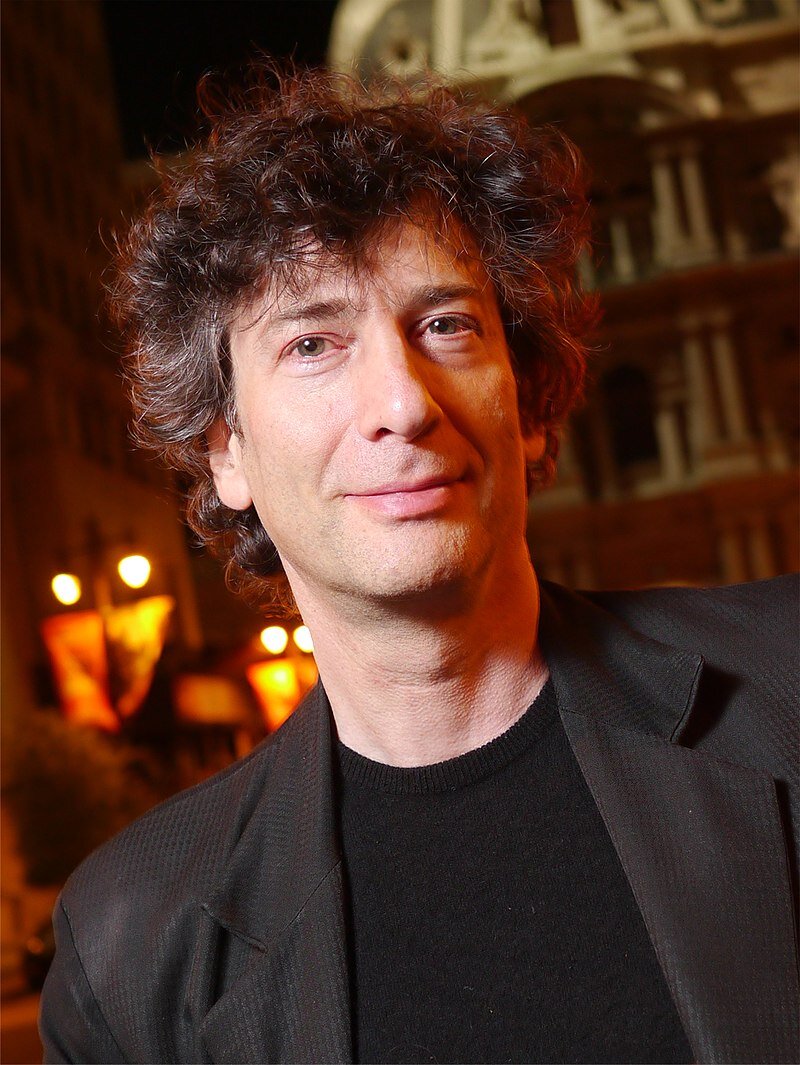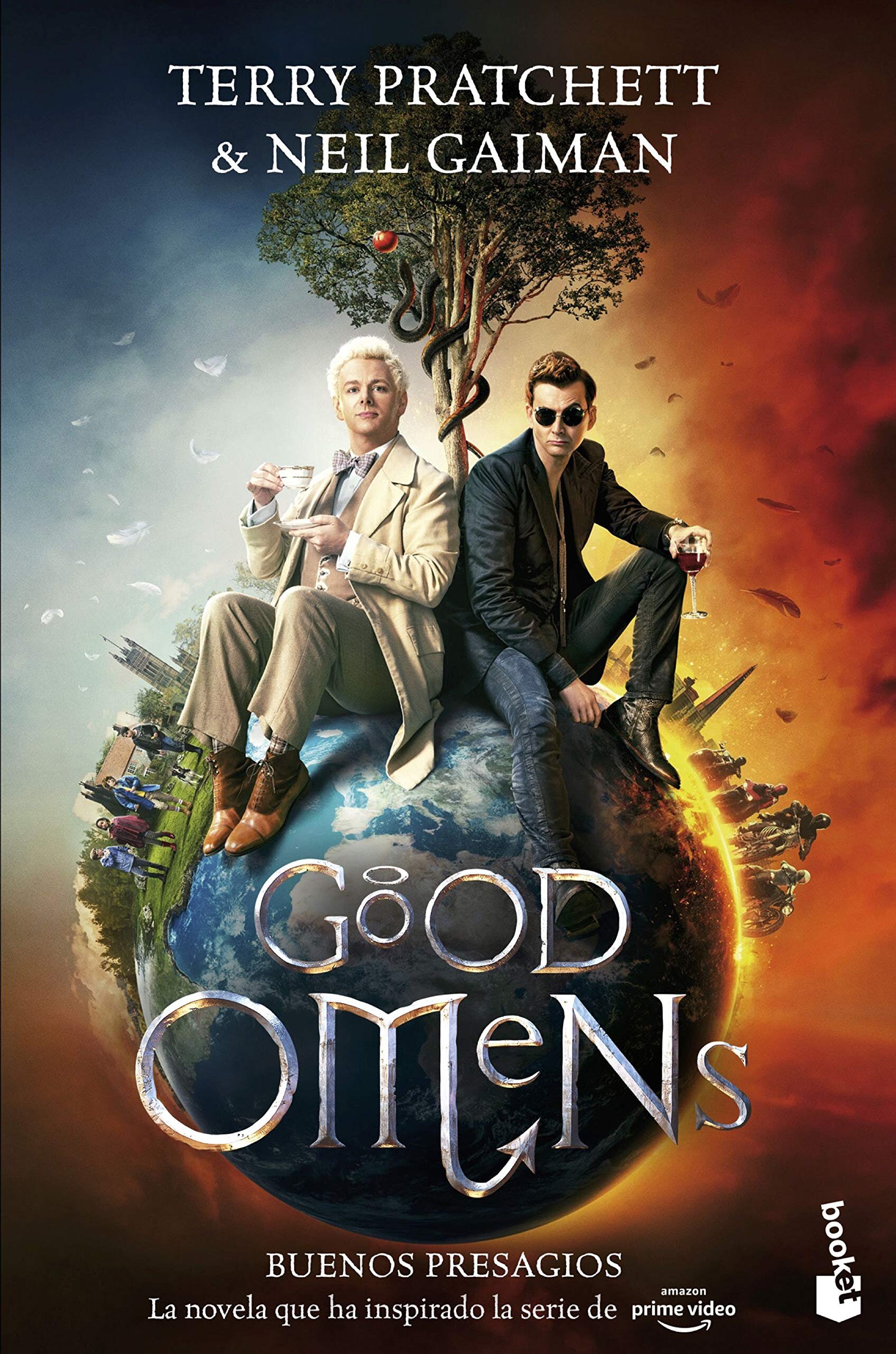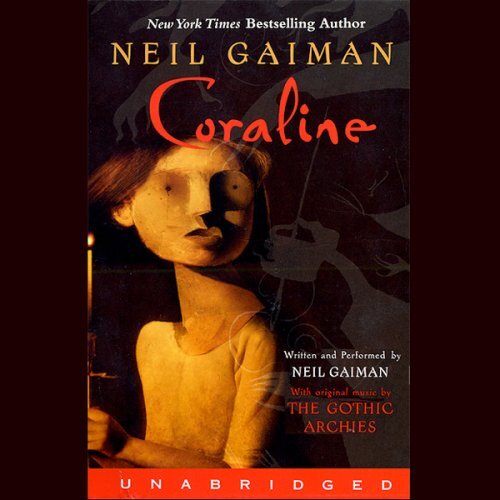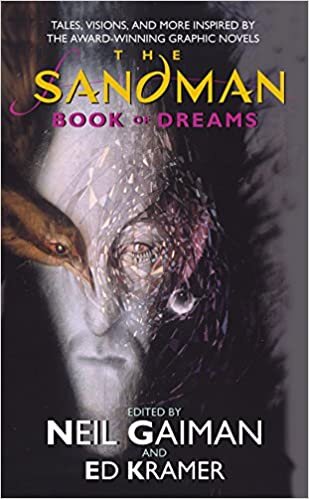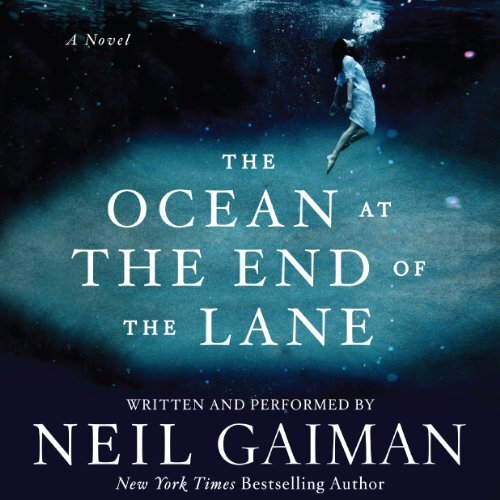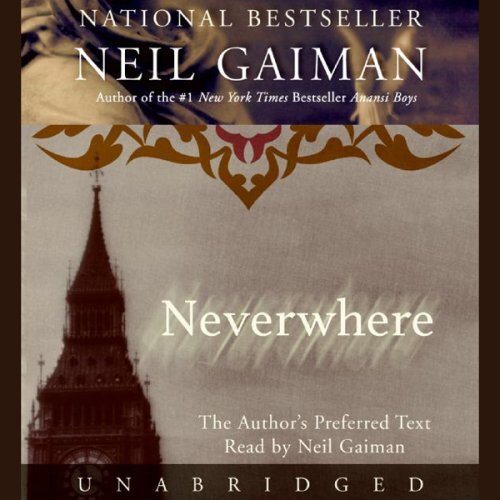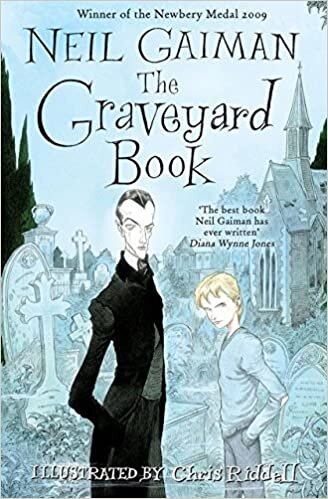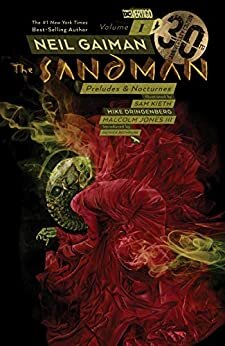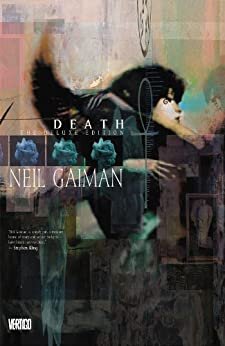It is difficult to make generalizations about Neil Gaiman’s books. His contributions to practically every literary genre have earned him a place in the Dictionary of Literary Biography as one of the top ten living post-modern writers. His work has been honored with many awards internationally, including the Newbery and Carnegie Medals. His books and stories have also been honored with 4 Hugos, 2 Nebulas, 1 World Fantasy Award, 4 Bram Stoker Awards, 6 Locus Awards, 2 British SF Awards, 1 British Fantasy Award, 3 Geffens, 1 International Horror Guild Award and 2 Mythopoeic Awards. I have to admit, about ten minutes before this interview began I had one of those last minute panic attacks. Would there be enough time to ask him about The Sandman (his series widely credited with reinventing comics), American Gods, Stardust, Coraline, The Graveyard Book, The Ocean at the End of the Lane, or any of his other works of prose, poetry, journalism, film, television, drama, and song lyrics? In the end, the only thing to do was to get out the way and just listen.
THE CREATIVE PROCESS
You were talking about Terry Pratchett. I guess you really began with him? Do you want to share some memories?
NEIL GAIMAN
I was fascinated because the two people who I, as a young writer, knew best, who were sort of established writers, were Douglas Adams–because I wrote a book called Don’t Panic: Douglas Adams & The Hitchhiker's Guide to the Galaxy. I’d go to spend time and work with Douglas. And I was friends with Terry Pratchett, and what absolutely fascinated me was they couldn’t have been more opposite. Douglas hated writing, and he was incredibly good at it, but he didn't like doing it and he would do it when he was backed into a corner and he’d do it when he had to and he would expend energy in not writing, which in some ways is really good because he became–he'd create computer games or he'd become a–there were points where he’d do weird projects with computers, learn all about computers and things like that, in order to not write because the act of writing was painful. And there was a point where he had to be locked in a hotel room for 3 or 4 weeks by his publisher to get a book out on time. You know, they'd solicited it, everything was ready and they didn’t have a book and he was halfway through and he had given up, so they just locked him in and he would pass pages under the door. Someone would sit outside watching videos.
THE CREATIVE PROCESS
I think Victor Hugo did something like that with his clothing. He wasn't allowed to have any so he wouldn’t be tempted to go out so he could concentrate on finishing his book.
GAIMAN
I remember that story, and so that was Douglas. Terry was the other way around. You know, you would have had to lock him in a hotel room for 3 weeks with no paper to stop him from writing a book. He was happy in his head, and he was happy in his head writing stuff down, he was happy making stuff up. I’m, you know, I definitely spent the first, 48, 49 years in my life happier in my head, but I was never, I always loved making, I always felt like I was real, and changing things and doing something sensible when I was writing, but I never felt prolific, and now what's weird is I can look at the shelves and shelves of stuff that I've created...
THE CREATIVE PROCESS
And it all came out of you.
GAIMAN
You know, I don’t know that I'm prolific, but I've never stopped, and I, except for maybe to change some nappies right now, I like making stuff up and I like being all over the place, so sometimes, I know that people would probably be happier with my career if I just stuck to one thing.
[...]
THE CREATIVE PROCESS
And in terms of drafts, then I’m wondering, do you ever have a fear of overworking? Or do you ever have a fear, because you say you throw away things that have been extraneous, but sometimes there's something quite lovely in that beginning process. And that it's spontaneous, it's what happens when you’re doing when you improv, right? And is there ever a fear that the second you get through the polish that you will lose that, I don’t know, the child-like beginning?
GAIMAN
No, I never worry about that. I worry, I worry about getting lost in the words of the story. But I never worry that the second draft is going to kill what works in the first draft. Partly because my, you know, normally the distance from my first draft to my second draft is 5%, you know they're not–but it's the really important 5%. So in the first draft you start somewhere and you keep going. The second draft you just make sure that everything is what you meant, and you notice the things that you miss as a reader, and the things that you miss as a reader, you fix as a writer. But, you know, to go back to your original question, do I worry about writing too much? Oh yeah. You know, years ago, I wrote a thing called A Writer's Prayer, and it's, let me see if I can find it. [...] This was something I wrote probably in about 1989, when I could see there were two futures and it was a writer’s prayer. And I wrote, ‘Oh Lord, let me not be one of those who writes too much, who spreads himself too thinly with his words. Diluting all the things he has to say like butter spread too thinly on a piece of toast, or watered milk in some worn out hotel. But let me write the things I have to say, and then be silent ‘til I need to speak. Oh Lord, let me not be one of those who writes too little. A decade man, between each tale, or more, where every word becomes significant and dread replaces joy upon the page. Perfection is like chasing the horizon, you kept perfection, gave the rest to us. So let me know when I should just move on. But over and above those two mad specters of parsimony and profligacy, Lord, let me be brave. And let me, while I craft my tales, be wise. Let me say true things, in a voice that's true. And with the truth in mind, let me write lies.’
[...]
THE CREATIVE PROCESS
I'm interested in your motifs, I’m thinking of Neverwhere. Often, you know, you're going into this underworld or you're going into a hole or a crack and I think I read somewhere that Alice in Wonderland was an early–was one of your favorite books. Could you talk about some of your early influences and echoes?
NEIL GAIMAN
Sure, there were definitely, in terms in books that I loved a kid and books that had huge influences on me as a 5-year-old, as a 6-year-old, as a 7-year-old, at the end age where you're discovering books and using them in order to understand adults and in order to understand the world that you’re in. Probably the most important ones back then would have been Alice in Wonderland and Through the Looking Glass. I remember as a 6, 7-year-old making my parents buy me a books on chess, so that I could teach myself enough chess so that I could understand Alice Through the Looking Glass.
Mary Poppins, P.L. Travers, and I think it's, it's interesting because you know I was taken when I was about 3 to see Mary Poppins and I loved it with Julie Andrews and when I was about 5-years-old I saw the Mary Poppins book and it had a picture of Julie Andrews on the cover and I got my parents to buy it for me and I took it home and discovered that Mary Poppins was so much darker and stranger and deeper than anything in Disney, so I may have read it as a 5-year-old hoping to re-experience the film that I remembered having loved, but what I found in the Mary Poppins book which I kept going back to was this sort of almost shamanistic world, a world in which Mary Poppins acts as a link between the luminous and the real, the idea that you're in a very real world, you're in this London, Cherry Tree Lane, 1933, except that if you have the right person with you, you can go and meet the animals at the zoo. You can go to the stars and dance with the sun, you can watch people painting the flowers in the spring. It was just very deep. You know, Mary Poppins is very smart and deep and weird and P.L. Travers was smart and deeply weird and writing smart, deep, weird fiction. The Narnia books–running into Narnia–while I loved the stories I loved what he did to my head even more. The idea that anything could be a door, the idea that the back of the wardrobe could open up unto a world in which it was winter and there were other worlds inches away from us, became just part of the way that I saw the world, that was how I assumed the way the world worked, when I was a kid that was the way that I saw.
[...]
THE CREATIVE PROCESS
So, I was interested, as you said you began with the Douglas Adams and then the Terry Pratchett collaboration–what made you go to The Sandman? What did you, I don't know the exact chronology?
GAIMAN
The chronology is weird. The chronology is, what I wanted to do through most of the mid 80s is comics. I'm fascinated by comics. Comics seemed to be a place where people hadn’t been. Novels, for better or for worse, for me, feel like cultivated fields. You know you look out over the novels and it's like looking out over gorgeous farmland, people have been working it for centuries, people smarter than you were out there, growing their crops and things hundreds of years ago and thousands of years ago. Comics felt like the jungle. There were things where I could go, nobody's ever done this. I could go and do things that nobody has ever done before and that was really kind of exciting. So that was where I wanted to be, but I also had to feed myself, so the Don't Panic Douglas Adams book was a book that I was writing while doing some comic stuff. I had been a journalist, and I was friends with Terry Pratchett anyway. We used to, he'd phone me up and try ideas out on me. We'd talk. And then, essentially the sequence was: I wrote the Douglas Adams book. After writing the Douglas Adams book, I went, "You know, I could do this English humor style. It's really fun, and it's very, very easy." And I wrote the first 5,000 words of what would be Good Omens. And then, Sandman happened. So, I went off and worked on Sandman. And about a year into Sandman, I got a phone call from Terry Pratchett saying, "Hey, that thing that you sent me. Are you doing anything with that?" I said no. He said, "Well, come on, do you want to write it together?" And I said sure. So, somehow, that was the hardest I think that I've ever worked. There had been two times which were as hard, but writing Good Omens while I was also writing Sandman and The Books of Magic, that was hard. That was like, you know, you do your page count on Sandman, and then do your page count on Books of Magic, and then I would write Good Omens, and then I would go to sleep and it would be 4 or 5 o'clock in the morning and I would get up at 1:00 and I would do it all again. The only time I think things ever got that mad were finishing Neverwhere, where I was, I went off to a hotel in Laguna Beach in California, which was just somewhere that my travel agent had found me to go, and I was doing 6 or 7 thousand words a day, which is something you can always do for one day, but the end of the week, I'm not sure that I was sane anymore. But anyway, I wrote Good Omens while Sandman was being written, while all of this stuff was being written. And it was a glorious mad time, and I'm so glad looking back on it that I was 28 and had relatively inexhaustible energy and was incredibly good at multitracking, because now I'm not, nowhere near as good.
[...]
THE CREATIVE PROCESS
I'm wondering, was it always language that ignited your imagination, was there, obviously because of your comics, did you make things [as a child]? Did you...it just seems very spacial-visual when you talk about it?
GAIMAN
I think everything I do is very visual. I loved comics because it seemed like the perfect medium. And I felt it was interesting when I was learning to write novels. When I wrote Neverwhere I definitely felt like I was over describing everything because I was so used to, at that point, every script that I would write would be a letter to an artist telling them what to draw and telling what everything looked like. And so when I was writing Neverwhere I felt like I was doing that probably too much and what I needed to do was try and pull back and just describe the right things, leave enough room for the reader to create themselves. You're kind of in a slightly peculiar world in which there's room for the reader to bring herself to what you're creating. And if you're going to say, if you're going to describe something, give it that one salient detail. It's like, everybody knows what a tree looks like, so you don’t have to describe the tree, just tell them enough to know why this tree is different from any other tree.
THE CREATIVE PROCESS
The emotional connect, yeah.
GAIMAN
Exactly. And that for me was pretty much what I was trying to do all the way through Ocean at the End of the Lane. And I loved what I was able to get away with. I loved the fact that I got to write a novel in which almost nobody has names. And, people tend not even to realize that while they're reading the book, it's only when they get to the end of the book. And I've seen a lot of people reviewing Ocean at the End of the Lane saying it wasn’t until they finished the book and went back to write about it that [they realized] we never know the narrator's name.
[...]
Ocean at the End of the Lane was absolutely feelings based and that was probably mostly feelings based because it started off as a short story that was going to be a present for my wife, and trying to explain some of my childhood to her. Trying to explain how–not the facts but what it was like to be me–when I was 7. And she was away and I missed her and she was off making an album in Melbourne, Australia and I was in Florida. So I thought, I'll write her a story, and I’ll just write her a little short story about that time and it will be a gift.
[...]
THE CREATIVE PROCESS
So you brought up, not a disadvantage, but something you picked up from writing notes to your comic book illustrators, maybe making things too detailed? What were some of the things that you got from writing for television and film that you took back to your novel or story writing?
GAIMAN
I've always, pretty much from the beginning, I've always wanted to write as if I were paying by the word to be published. So that's always gone in there. Whether it's film or television, whether it's comics, whether it's novels, and especially short stories. I want everything to count. I want every word to count.
This interview was conducted by Mia Funk with the participation of collaborating universities and students. Associate Interviews Producer on this podcast was Terry Clark. “Winter Time” was composed by Nikolas Anadolis and performed by the Athenian Trio. With special thanks to Kimberly Leong and Minna Proctor for editorial assistance.
Find us on Apple Podcasts, Spotify, Google Podcasts, Podcast Addict, Pocket Casts, Breaker, Castbox, TuneIn, Overcast, RadioPublic, Podtail, and Listen Notes, among others.
Mia Funk is an artist, interviewer and founder of The Creative Process.




